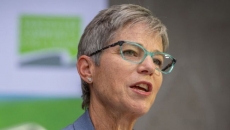In a bold move to shape its demographic landscape, Canada is gearing up to welcome a significant influx of immigrants, with the government's announced targets aiming to bring in 485,000 new permanent residents in 2024, escalating to 500,000 in 2025, and maintaining that level in 2026. This strategic push is propelled by the twin engines of economic growth and a compassionate response to global humanitarian crises.
However, as Canada sets its sights on this ambitious immigration plan, a nuanced examination reveals a deliberate shift in emphasis. While overall admissions are on the rise, there is a specific pivot towards classes of immigration tied to the economy and family reunification. Conversely, admissions for humanitarian and refugee applications are slated to decrease, signaling a potential recalibration of evaluation criteria for claims grounded solely in humanitarian or refugee status.
In tandem with this surge in immigration, the Canadian government is strategically molding its policies to meet the demand for skilled workers in critical sectors. Health, STEM, trades, transportation, and agriculture are focal points for growth, and various initiatives have been introduced to facilitate permanent and temporary residence. Updates to the express entry program, the Tech Talent strategy, and alterations to the International Student Program underscore the commitment to building a diverse and skilled workforce. Yet, against this backdrop of heightened immigration ambitions, a pertinent question arises: Is Canada equipped to support such an influx given the prevailing challenges with affordable housing?
The Honorable Ravi Kahlon, MLA for Delta North and Minister of Housing acknowledges the existence of a housing crisis, emphasizing a staggering two-decade lag in government investment in affordable housing. He reveals that efforts have been underway to eliminate red tape and expedite the construction of housing for low-income individuals, a sector often neglected by the private market.
In regards to the alignment of housing policies with the anticipated increase in population due to the government's immigration plans, Minister Kahlon stressed the need for better collaboration with the federal government. While supporting the immigration numbers from a British Columbia perspective, he highlights the exponential increase in temporary residence numbers, particularly in the case of international students. The challenge, he emphasized, is not with the immigrants themselves but with the strain it places on local resources and the need for closer cooperation between provincial and federal authorities.
"There is no doubt that we will be able to solve the housing crisis. We just have to remove barriers; that is the focus for the upcoming new year," Minister Kahlon declared optimistically, underscoring a commitment to addressing the housing challenges that accompany the ambitious immigration targets.
Member of Parliament for Surrey Centre, Randeep Sarai, identifies the lack of housing supply as the most pressing challenge. He points out that municipalities and cities have not been building enough supply. However, MR Sarai also sheds light on positive trends, noting an increase in multiplex construction across the country, with thousands of units being added. This surge is attributed to a government incentive program aimed at revitalizing the rental stock.
Acknowledging the challenges posed by a retiring baby boomer population, MP Sarai emphasizes the need for a workforce to build new homes. He highlights the lag period between an increased population and the availability of housing, urging for a collective understanding that addressing housing challenges requires time, “It would have been preferable if other governments had prioritized housing earlier, too. Our platform relies significantly on a housing strategy, but the implementation takes time. The construction process has begun, but the onset of the COVID-19 pandemic has slowed down progress as well.”
Bringing forth a unique perspective, Chelsea Minhas, Chief Program Officer at Covenant House Vancouver focuses on the impact on vulnerable populations, particularly young people. Serving those experiencing homelessness between the ages of 16-24, Covenant House Vancouver faces the harsh reality of an already competitive housing market. Minhas emphasized the need for developmentally appropriate housing, noting that while additional resources have been allocated to low-income and supportive housing, the focus has predominantly been on the adult population. This, she argues, neglects the specific needs of young people starting out in life, exacerbating their struggles in an already challenging housing market.
Minhas further sheds light on the challenges posed by an influx of refugees and asylum seekers. While Canada welcomes an increasing number of immigrants, the support structures for these vulnerable populations often lag behind. Minhas underscores the need for support to match the pace of immigration increases, especially for those with significant trauma issues stemming from war-torn countries.
A fifth of the homeless population consists of young individuals, yet only a corresponding 20% of resources are allocated to support them. In the Covenant House Vancouver’s 25-year history, the team is, for the first time, witnessing unprecedented challenges, including a shortage of beds and an alarming increase in turn-away numbers. “Many young people arrive in Canada as their family's last hope, only to discover that the reality doesn't align with their expectations. It's crucial for our community to unite and address these pressing issues collectively.”, notes Minhas.
Chief Executive Officer of Surrey Urban Mission, Jack O’Halloran brings into the limelight the challenging the definition of "affordable" housing. He highlights the plight of the working poor, a sizable yet unrecognized population struggling to make ends meet. O’Halloran points out that despite having jobs, many individuals find themselves with little to no disposable income after paying bills and rent, leading them to rely on food banks for sustenance.
For organizations like Surrey Urban Mission that operate homeless shelters, the challenges are manifold. O’Halloran outlines the difficulty of assisting families due to a lack of infrastructure designed for their needs, revealing a critical gap in support systems. He states, “It just makes it very difficult to help families because we are only set up for single beds and really no children’s programs.”
As Canada ventures into this ambitious immigration plan, the challenges with affordable housing point to the need for comprehensive and collaborative solutions. Discussions do paint a picture of optimism, acknowledging the hurdles while expressing confidence in the ability to overcome them. Removing barriers, increasing collaboration between federal and provincial authorities, and addressing the specific needs of vulnerable populations emerge as key strategies to ensure that Canada's immigration surge aligns with sustainable and inclusive growth. As the nation prepares to welcome a wave of new residents, the balancing act between immigration goals and housing challenges will undoubtedly shape the trajectory of Canada's future.






